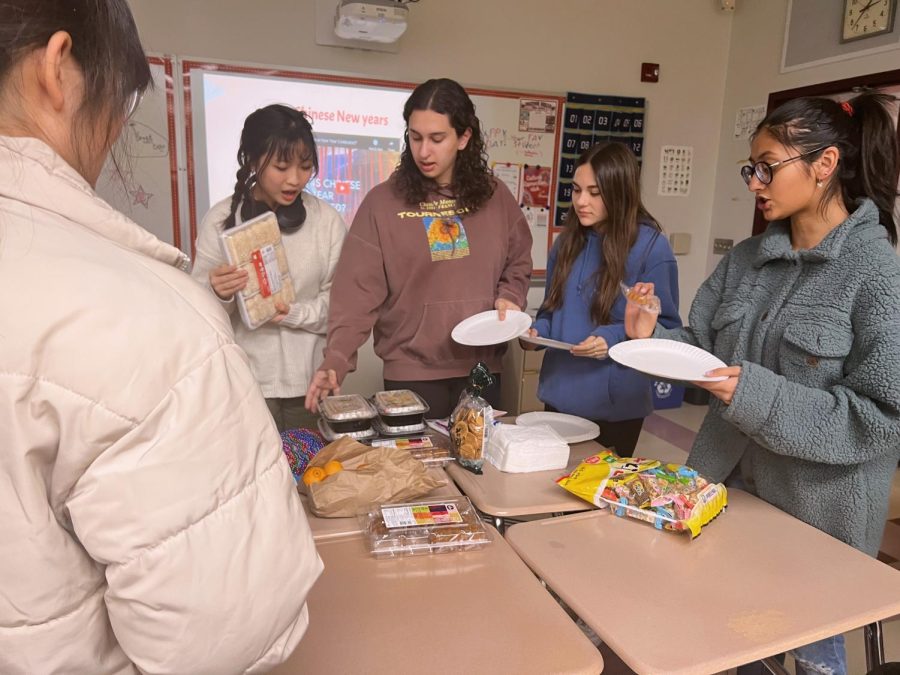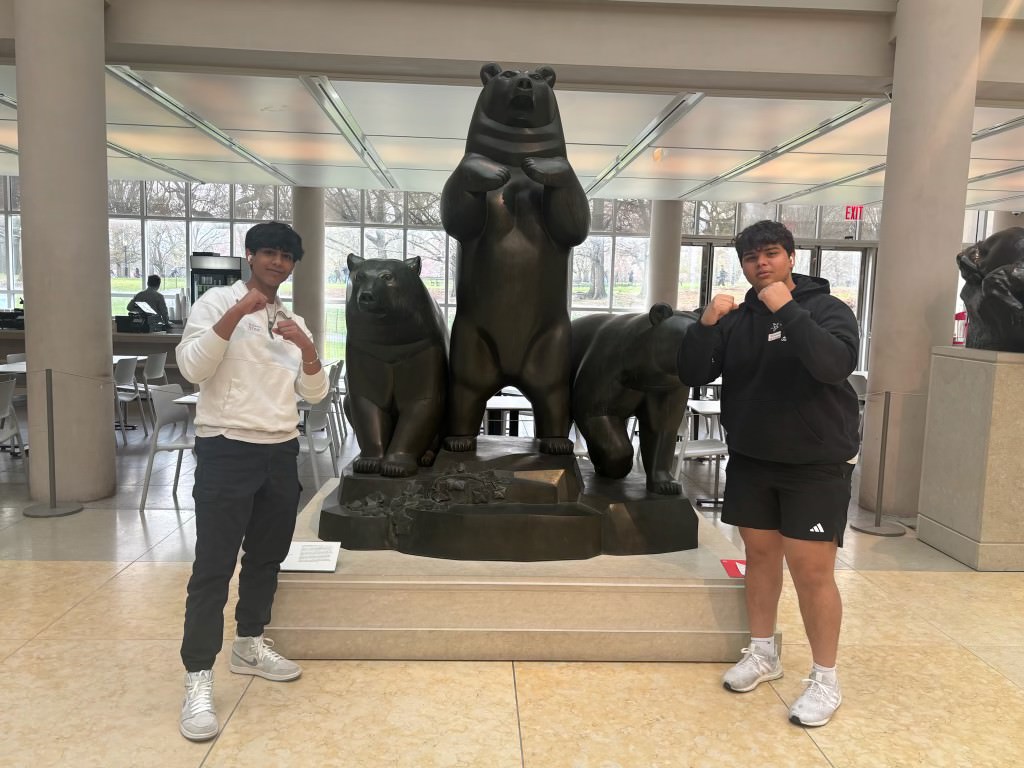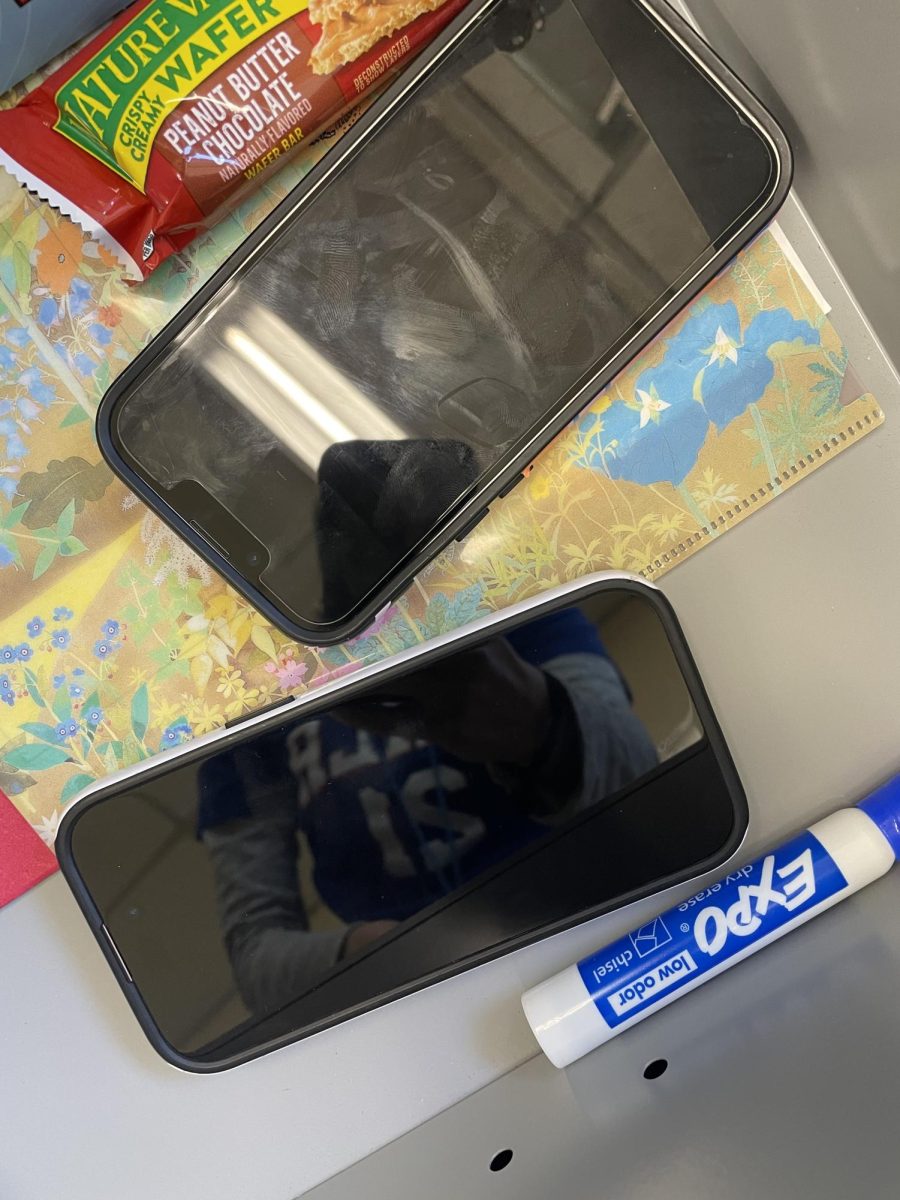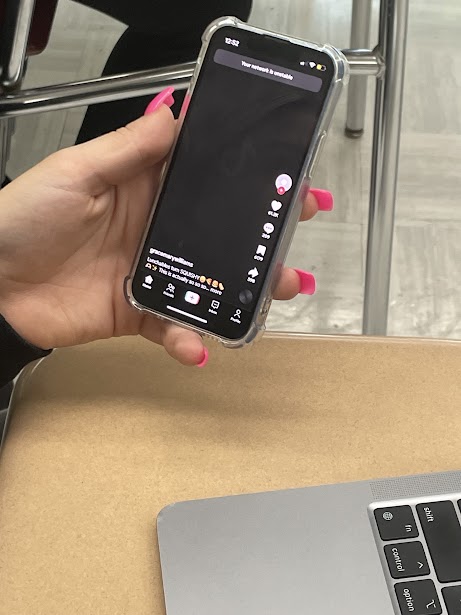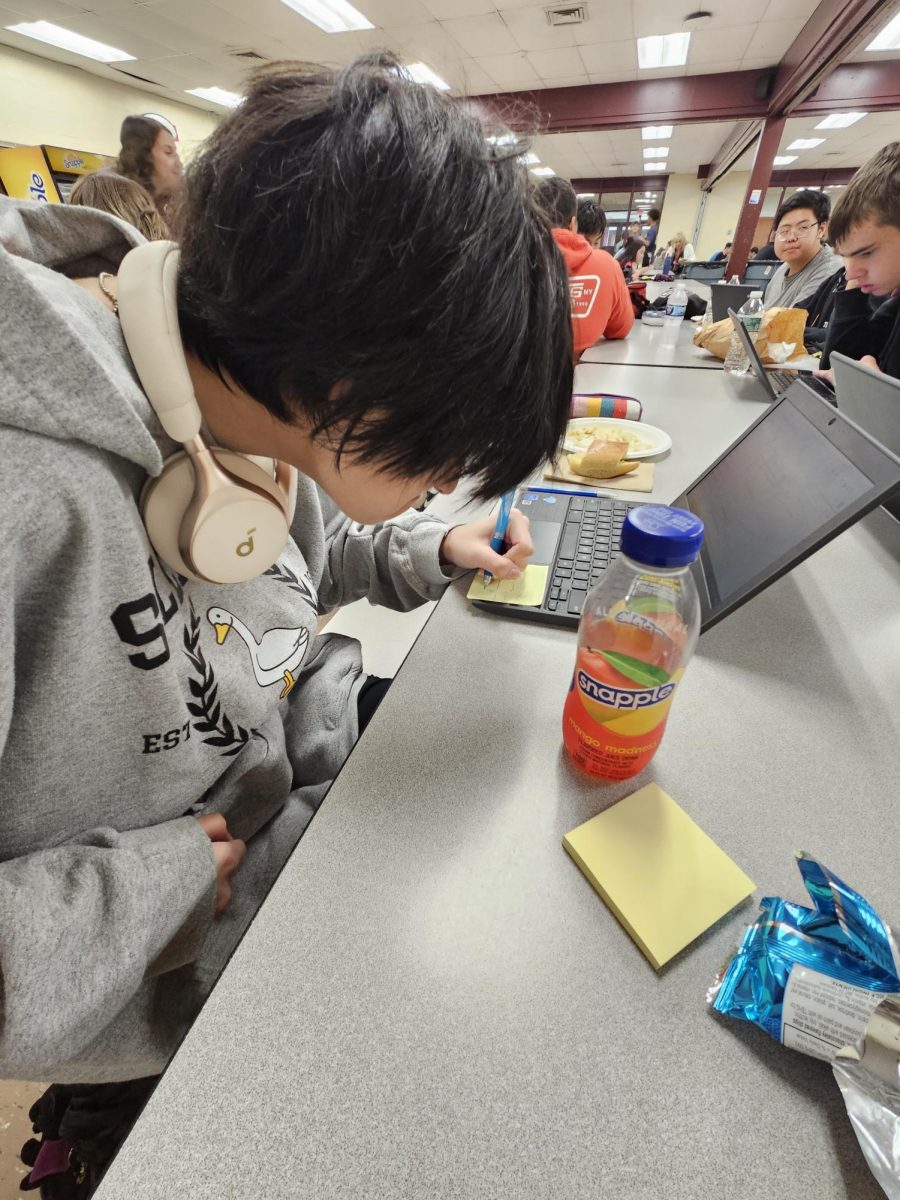The Culture Club Celebrates the Spirit of the Lunar New Year
February 2, 2023
On Thursday, January 26th, the Wayne Hills Culture Club held a celebration in room 155 for the Lunar New Year.
The Lunar New Year is observed in most East Asian countries, including China and Korea. The holiday commemorates the first day of the Lunar Calendar, and always falls sometime in January or February.
The Lunar New Year differs from the traditional American New year in many ways, although the main difference goes back to the calendars. The Lunar Calendar is different from the Gregorian Calendar in the way that it is based upon the different cycles of the moon phases. The Lunar New Year begins with the first new moon and ends fifteen days later on the first full moon of that year.
To celebrate the holiday, people all around the world eat traditional Chinese and Korean dishes, set off firecrackers, give envelopes filled with money, and showcase red clothing and decorations according to ancient tradition.
The Culture Club was fortunate to have members willing to bring their cultures from home to school, making the celebration more welcoming and authentic. The students created a slideshow discussing the history of the holiday, put together red envelopes with a winning prize, and even brought in some traditional Korean and Chinese flavors with the help of the club’s adviser, Ms. Logothetis.
During the meeting, members learned the cultural significance of food during the Lunar New Year. Yakgwa, a Korean pastry, is a sweet dough-like biscuit with honey: an ingredient that is said to have traditional medicinal benefits. It is typically enjoyed during holidays, ancestral rites, and weddings. Hangwa, another snack, is made from glutinous rice. It is pounded several times and then shaped into tiny pieces. It was also used for tea-time snacks among families or served on holidays. Additionally, there were noodles provided for people to eat while watching informative videos on the historical background of the Chinese New Year.
In the beginning, members played a game, Kongi. In the popular Korean children’s game, players throw stones on the playing surface, and the player picks a stone to throw up in the air. While airborne, the player picks up one stone on the playing surface. Then, the player catches the stone. All these steps are repeated until all the stones have been caught.
Another noteworthy tradition of the New Year is for adults to give children red envelopes filled with money. One member of the club included this in the celebration by bringing in red envelopes for everyone, each one filled with a fake eighty dollars, except for one which had eighty-four dollars. Everyone opened their envelopes, and the student with the higher-valued envelope was given candy as a prize. Although this did not entirely mimic the holiday’s tradition, the group nonetheless understood the cultural significance of the envelopes and their fortune.
Clubs like this at Wayne Hills engender community spirit and create a lasting impact on members of the school. Students left the meeting with a greater understanding of the world around them. Furthermore, the heritage of their classmates and those of Chinese, Vietnamese, and Korean descendant. Junior Julie Bae remarked, “It allows people of color to be seen for their culture and their background.” Moreover, Jieun built on this idea and said, “It is an important experience.”
The club aims to educate students on multiple cultures and uplift communities. Ms. Logothetis noted, “The officers that we have wanted to celebrate cultures when they come along. They saw Lunar New Year as a way to celebrate a few Asian cultures together.” She went on to say that it’s really important to celebrate people that do not always get the same representation and voice in the classroom setting.
The Culture Club held a fun yet authentic celebration recognizing the Lunar New Year and learning about its background, traditions, and universal meaning: to invoke the spirit of good fortune and a blessed year to come.



